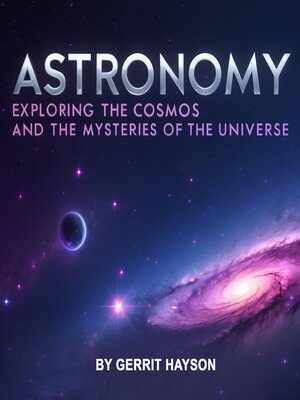Astronomy
audiobook (Unabridged) ∣ Exploring the Cosmos and the Mysteries of the Universe
By Gerrit Hayson

Sign up to save your library
With an OverDrive account, you can save your favorite libraries for at-a-glance information about availability. Find out more about OverDrive accounts.
Find this title in Libby, the library reading app by OverDrive.



Search for a digital library with this title
Title found at these libraries:
| Library Name | Distance |
|---|---|
| Loading... |
This audiobook is narrated by a digital voice.
Since the first humans looked up at the night sky, we have been captivated by the celestial dance above our heads. The stars, moon, and wandering planets have inspired countless myths, guided navigation across vast oceans, and sparked the fundamental questions that drive scientific inquiry today. From the stone circles of ancient Britain to the elaborate astronomical instruments of medieval Islamic scholars, our relationship with the cosmos has shaped civilization itself.
The earliest astronomers were not scientists in the modern sense, but rather keen observers who noticed patterns in the seemingly chaotic movements of celestial objects. The Babylonians, working without telescopes or sophisticated mathematics, managed to predict eclipses with remarkable accuracy by carefully tracking the movements of the sun and moon over many years. Their observations laid the groundwork for the zodiac system we still recognize today, dividing the sky into twelve sections based on the apparent path of the sun through the constellations.
Ancient Greek philosophers took these observations and began to ask deeper questions about the nature of the universe itself. Aristotle proposed that Earth was a sphere, supporting his argument with observations of how ships disappeared over the horizon and how the Earth's shadow on the moon during lunar eclipses was always circular. Eratosthenes went further, calculating the circumference of Earth with surprising accuracy using nothing more than shadows cast by the sun at different locations.







